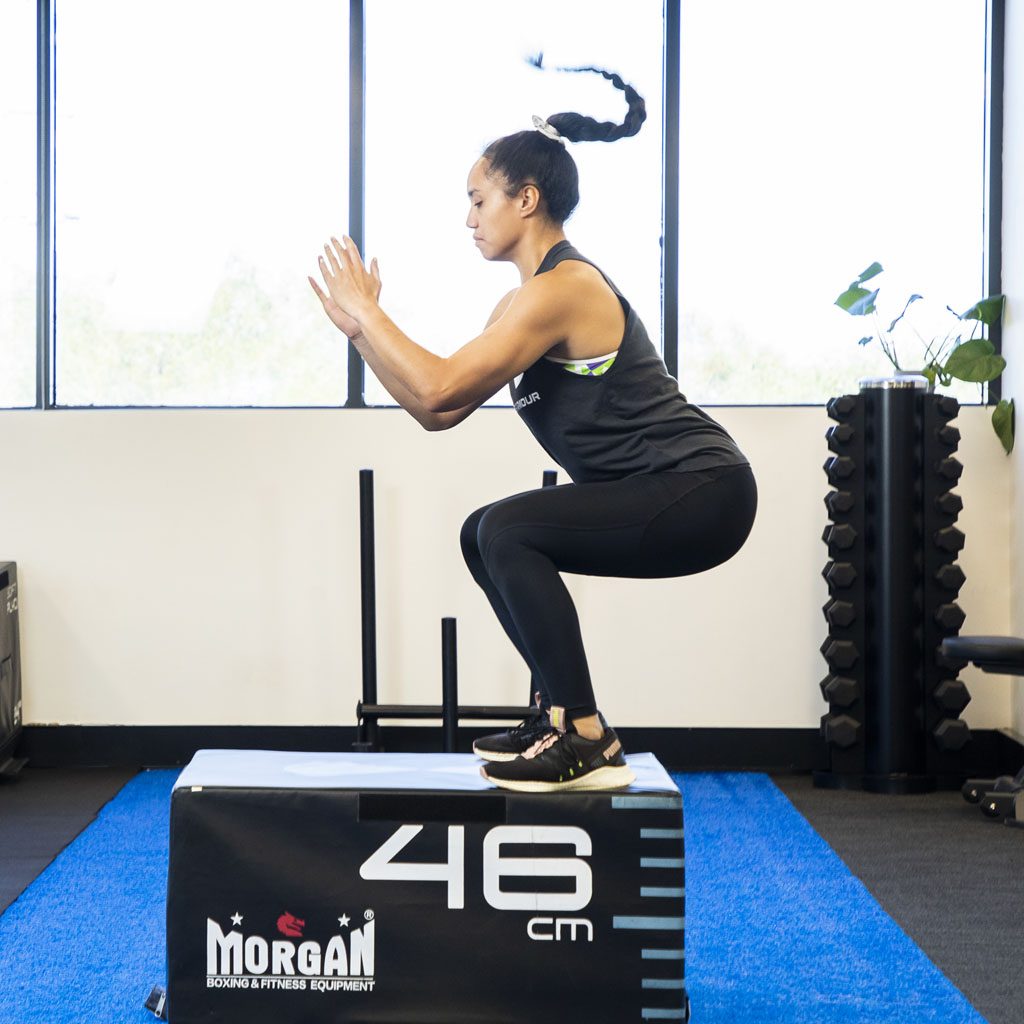Posterior cruciate ligament (PCL) tears
The posterior cruciate ligament (PCL) sits inside the knee and stabilises it during sudden changes of direction or quick stops.
A PCL tear is often painful and causes a swollen and stiff knee for the forst few days.
PCL tears need to be assessed by a physiotherapist or orthopaedic surgeon as soon as possible. Even if it doesn’t need surgery, the best recovery comes from starting rehab early.

The posterior cruciate ligament (PCL) sits inside the knee and helps stabilise it, especially during sports that involve sudden changes of direction or quick stops.
The knee joint is made up of three bones – the thighbone (femur), shinbone (tibia) and kneecap (patella) – and is stabilised by four main ligaments.
The anterior and posterior cruciate ligaments (ACL and PCL) sit in the middle of the knee and control its back and forth motion, stopping it from giving way. The medial and lateral collateral ligaments (MCL and LCL) are on the outside of the knee joint and brace it against unusual sideways motion. 
A ligament injury can be:
- Grade 1 – a sprain
- Grade 2 – a partial tear
- Grade 3 – a complete rupture
PCL injuries are less common than ACL injuries and are often injured along with other ligaments in the knee. Your specialist will grade the injury clinically – this grading may be different to the grades used by radiologists in their MRI scan reports.
PCL tears are relatively uncommon and even less common on their own. Normally the injury that causes the PCL tear also damages other ligaments within the knee such as the ACL, MCL or posterolateral corner. Two or more damaged ligaments are called a multi-ligament injury.
PCL injuries usually happen when the front of the upper shin bone is struck hard, forcing the shin bone backwards. This is most common in American football and in motor vehicle accidents when the knee strikes the lower part of the dashboard.
You may have felt your knee give way and buckle beneath you. It is common to feel or hear a ‘pop’ as the ligament snaps – this can be painful but is not always. You may not be able to take weight through your knee and need support from others or crutches to walk. If you managed to play on, your knee may have felt unstable or given way.
Your knee will swell within the first 24 hours and can remain swollen for weeks, depending on the injury’s severity and whether any other ligaments or cartilage are damaged. This swelling makes the knee stiff and difficult to fully straighten or bend.
Your specialist will ask how the injury took place, your general health, and any previous knee and other joint injuries. It’s important to describe your recreational and sporting activities and competitive level in them – this can change your treatment options and recovery timelines.
A physical examination of the knee demonstrates the PCL injury and any associated damage.
A specialist will always want an MRI scan to check the grade of the injury and to look for cartilage, meniscus and other ligament damage. It is common to have an x-ray as well – this is easy to get quickly and can rule out a fracture.
The first stage of treatment is to settle the knee down which involves treating the swelling and the stiffness. It is vital to engage a physiotherapist as early as possible. We help you to settle your knee down so that it can be used for day to day activities without pain.
This involves anti-inflammatories such as ibuprofen, diclofenac or meloxicam for 1 to 2 weeks, which reduces swelling and pain – please check with your doctor or specialist that these medicines are safe for you first. Some compression bandaging can be useful, as can ice packs.
It’s vital to see a physiotherapist as early as possible. The strength of the quadriceps and hamstrings will disappear quickly without appropriate training and swelling will make the knee stiff. Specific exercises as part of a comprehensive prehab and rehab program aim to strengthen the leg muscles and restore function to the knee joint.
A torn PCL usually doesn't heal but you can have a stable knee and be very active without a functioning PCL. However, some patients will need reconstruction surgery,
We have rehab programs here at Jointworks to treat patients with PCL injuries who are planning to have surgery and those who plan to trial activity without surgery.
